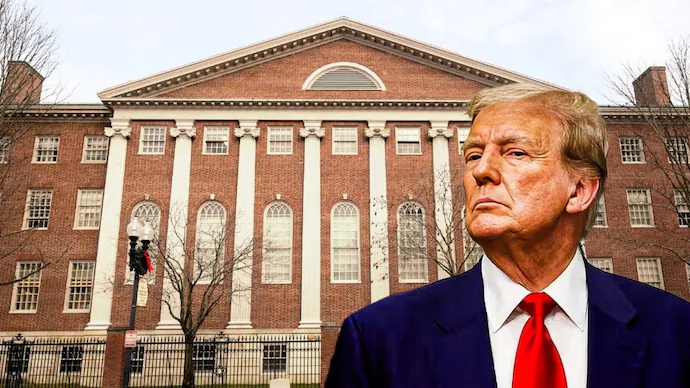In a move that has sent shockwaves through the academic world, President Donald Trump has announced a ban preventing Harvard University from accepting foreign students. This decision has sparked widespread debate, legal challenges, and concerns about the future of international education in the United States.
The Genesis of the Ban
The Trump administration's decision stems from allegations that Harvard University failed to comply with federal requests for information regarding its foreign student population. The Department of Homeland Security (DHS) accused Harvard of not adequately protecting Jewish students and demanded extensive data on visa holders. Despite Harvard submitting thousands of pages of documentation, the DHS deemed the compliance insufficient, leading to the revocation of Harvard's certification to enroll international students.
President Trump defended the move, stating, "Why isn't Harvard saying that almost 31% of their students are from FOREIGN LANDS, and yet those countries, some not at all friendly to the United States, pay NOTHING toward their student's education, nor do they ever intend to."
Legal Repercussions and Harvard's Response
In response to the ban, Harvard University filed a lawsuit against the Trump administration, arguing that the decision was unconstitutional and would have an "immediate and devastating effect" on more than 7,000 visa holders. A federal judge granted a temporary restraining order, blocking the administration's move and allowing international students to remain enrolled at Harvard for the time being.
Harvard President Alan Garber condemned the federal action as "unlawful and unwarranted," emphasizing the vital role international students play in the university's community and academic mission.
Impact on International Students and the Academic Community
The ban has left thousands of international students in a state of uncertainty. Harvard hosts approximately 6,800 foreign students, with a significant number from China and India. These students now face potential disruptions to their education, legal status, and future career prospects.
The decision also threatens Harvard's athletic programs, as many teams rely heavily on international talent. For instance, the women's basketball team, which recently made its first NCAA Tournament appearance since 2007, includes key international players whose visa statuses are now in jeopardy.
Beyond Harvard, the ban sets a concerning precedent for other U.S. institutions that depend on international students for cultural diversity, research contributions, and financial support. The move has raised alarms across academia, with many fearing a chilling effect on global academic collaboration.
Broader Political and Social Implications
The Trump administration's actions against Harvard are part of a broader crackdown on perceived liberalism and diversity, equity, and inclusion (DEI) efforts in higher education. The administration has accused Harvard of harboring Chinese Communist Party influence and fostering antisemitism, further intensifying the ideological clash between the government and academic institutions.
The situation reflects broader geopolitical tensions and fears over foreign influence in American academia. Critics argue that these actions risk damaging U.S. leadership in global higher education and could undermine legitimate academic exchange.
Read More






 Saturday, 07-02-26
Saturday, 07-02-26







